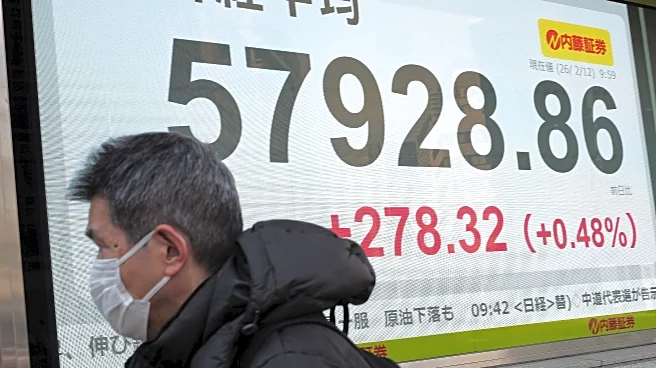What's Happening?
A recent immigration raid at a Hyundai-LG battery plant in Georgia has led to the detention of 475 workers, primarily South Korean nationals, sparking alarm among multinational companies operating in the U.S. The raid is part of a broader crackdown on illegal immigration by the White House. Companies are now seeking legal advice and reassessing travel plans for foreign employees. The incident has raised questions about visa compliance, particularly concerning B-1 visas used for business meetings. Homeland Security Secretary Kristi Noem stated that the raid would not deter investment, but companies are closely monitoring the situation.
Why It's Important?
The raid underscores the heightened scrutiny on immigration practices and compliance within the U.S., affecting foreign companies and their workforce. It highlights the potential risks and legal challenges faced by businesses employing foreign nationals, which could impact their operations and investment strategies. The situation may lead to increased caution among international firms considering expansion in the U.S., potentially affecting economic growth and job creation. The incident also reflects broader immigration policy shifts under the current administration, influencing corporate decision-making and international relations.
What's Next?
The raid may prompt foreign companies to review their visa policies and ensure compliance with U.S. immigration laws. Legal experts anticipate more enforcement actions, which could lead to changes in how companies manage their foreign workforce. The situation may also influence future policy discussions on immigration reform and its impact on business operations. Stakeholders, including industry groups and government officials, will likely engage in dialogue to address concerns and find solutions that balance enforcement with economic interests.
Beyond the Headlines
The incident raises ethical and legal questions about the treatment of foreign workers and the responsibilities of companies in ensuring visa compliance. It also highlights the complexities of immigration policy and its intersection with business practices. The raid may lead to broader discussions on the role of immigration in the U.S. economy and the need for clear guidelines to support international business operations.











